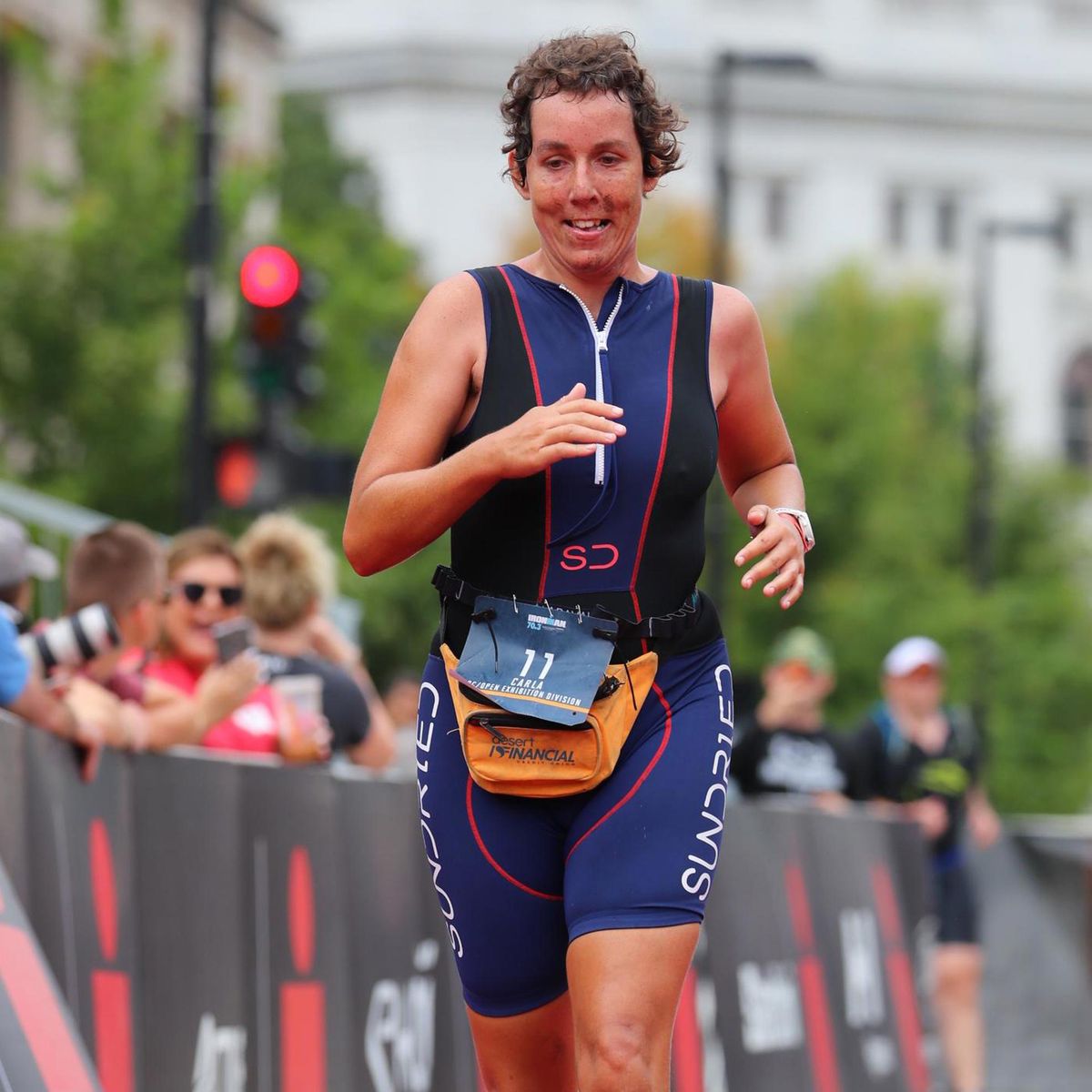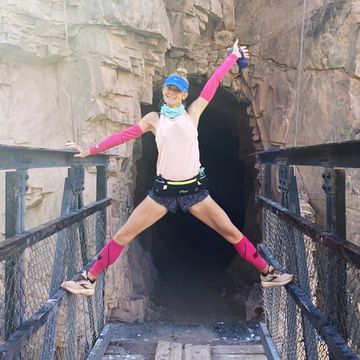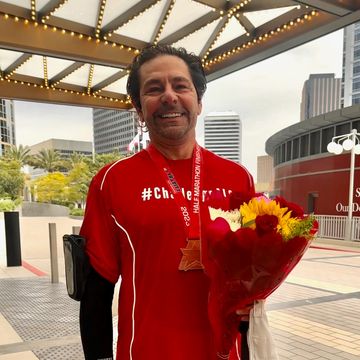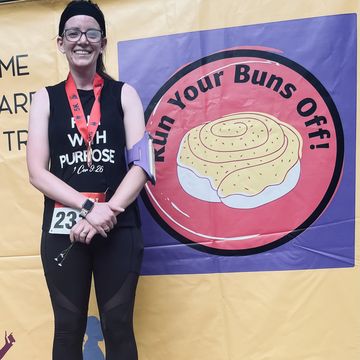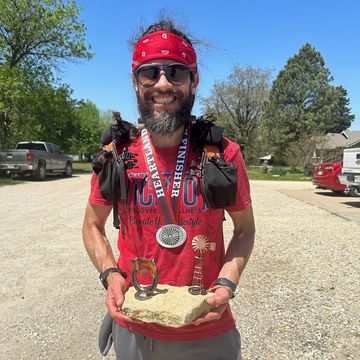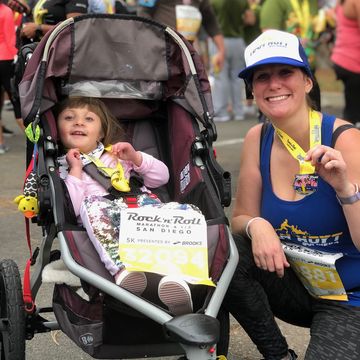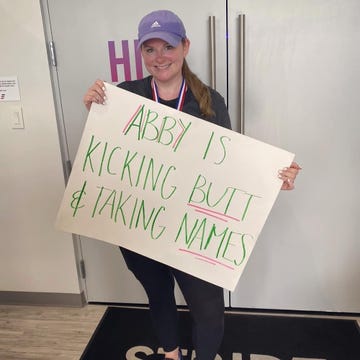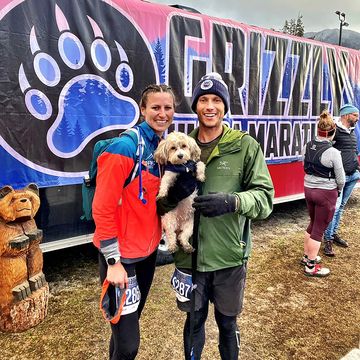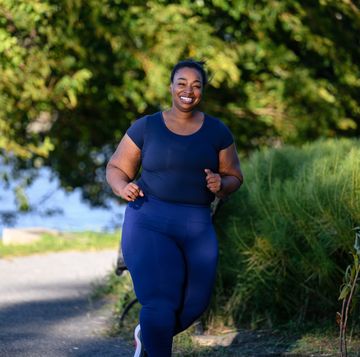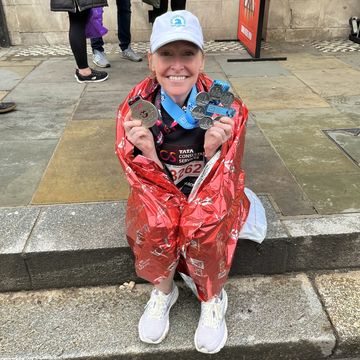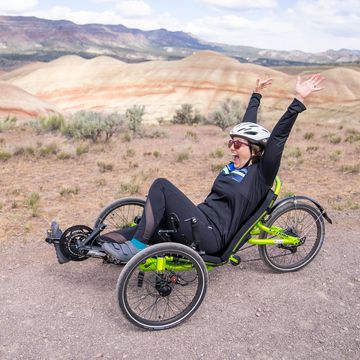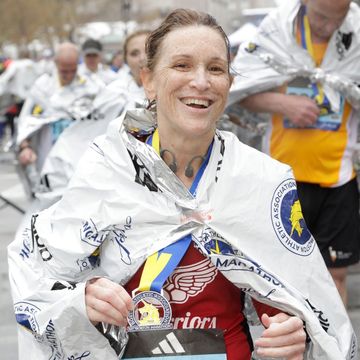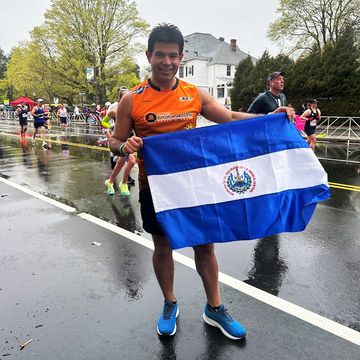Name: Carla Simon
Age: 35
Hometown: Manitowoc, Wisconsin
Time Running: 15 years
Reason for Running: It helps me cope with having autism, and improves my mental health.
I started running through the Special Olympics in Wisconsin in 2007 as a sprinter. After moving to Arizona in 2011, I became part of a Special Olympics unified run club and got into longer distance running. I began training in late 2012 for the 4.2-mile run. When I started increasing my distance training, I was training about three times a week. I didn’t use any training plans; I mostly followed workouts coaches or my unified partners suggested. I did a lot of running and walking and listened to my body.
Then in 2013, I was encouraged to sign up for my first 5K to cope with the grief I was going through. My mother passed away in June 2013, and running helped me mentally get through it. Her death was very traumatic; I was the one who found my mom (who had passed away in her sleep). That is hard to forget, even 10 years later. I was responsible for telling my stepdad and then going over to tell the neighbors.
More From Runner's World

A few months after her death, I was chosen for the Special Olympics USA Games, qualifying as a 50-meter-dash runner. I was encouraged to train hard so I could be more successful.
I continued training for longer distances, eventually working my way up to running an ultramarathon. My most memorable races are the five 100-mile fixed time ultras that I began racing in 2018. I have done at least one or two 100-milers a year since then. I also ran the 2021 Boston Marathon, which was the 125th anniversary year of the race, so we earned a gold-colored unicorn medal if we did the in-person race—which I love!
Completing my first Ironman 70.3 in Wisconsin last year was also memorable because we had good weather. I was also able to push through run/walking more than 200 miles in six days at Across the Years at Camelback Ranch in Glendale, Arizona last year. If I can do that, I feel like anything is possible.
What inspired me to get into running and triathlons was seeing other Special Olympics athletes accomplish feats in the endurance world along with others with autism and physical disabilities. Plenty of the mental struggles and trauma that have happened in my life inspired me to do something positive.
Throughout my life, I have had to overcome many physical and neurological struggles, including autism, dyspraxia, and epilepsy. I was diagnosed with epilepsy when I was around 12 months old, and with autism and dyspraxia in preschool due to encouragement from a teacher who noticed things with me were different. My mom always noticed—I never cried or showed much emotion as a baby.
It was the epilepsy that held me back a lot growing up. I struggled with seizures that required brain surgery. I still have epilepsy, but I haven’t had issues with it since medication. As long as I take it, I seem to do alright, and it keeps things under control. The dyspraxia causes muscle coordination issues to where I cramp up easily, or have a weird gait in my running and swimming.
My autism can influence the way I race and train because if an issue comes up like a flat, I may not notice it without help or may forget to bring enough hydration.
Along with the brain surgery I underwent as a child, living with autism, and my mother’s death, all my struggles from the past keep me going. When I struggle during races, I remind myself that I have been through even harder situations.
I have an Ironman 70.3 on my schedule in Michigan this September, and then I am doing my first full Ironman in Arizona this November. I am also entered into the 2023 London Marathon, and would love to reach a goal of doing all World Marathon Majors so I can earn my six-star medal. I have already done Chicago and Boston.
Running makes me feel that my disabilities don’t prevent me from overcoming challenges in life. Overall, I feel accomplished and motivated with every race I finish. And it makes me learn more about myself and what I need to work on or what does and doesn’t work for me. Running has also helped me make friends.
As a person with disabilities, my running journey has never been easy. Financially, it can be costly. A lot of people with disabilities don’t earn much and live on a limited income. If we had support systems in place like pro athletes had with sponsorships or help with travel and gear costs, more physically challenged athletes would enter triathlons. I have never been able to afford the costs without support from my stepdad.
I know the physically challenged category that some races offer is new to a lot of people without disabilities, and not every race has that category yet. I am hoping that will happen and more people are considerate to those of us who do have disabilities—even ones that aren’t always noticeable.
These three tips have made my running journey a success:
1. Listen to your body and love what you do
Listen to what your body wants or needs because if you don’t, it could cause a longer recovery time or cause you to miss races you want to do. If you don’t enjoy what you do, it will make a race or training even harder. A lot of times racing is more mental than physical—same goes with training. If you listen to your body you’ll better love what you’re doing
2. Know the difference between when to quit and when to keep going
Think through things, like how the weather might be or what safety a race may offer when it comes to protocols. There are a lot of things to consider and if you must take a DNF in a race, it is okay because there is always another race.
3. Ask for help
It takes a support system to make your dreams happen. Don’t be afraid to ask for help if you need it, even if you aren’t sure people will help you. I can only hope someday that more people and places will understand there are people with differences out there competing.
Carla’s Must-Have Gear
→ Hoka Clifton 9: I love these shoes because my running gait works well with them.
→ Roka Goggles: I like Roka goggles because they don’t seem to fog up on me and I can see easily when swimming in open water—a must-have for those doing triathlons.
→ Honey Stinger Vanilla Waffles: I eat these for fuel on mile 13 to 16 of a marathon, or when I get into transitions between the swim and bike during triathlons. I also eat them every hour or so on the bike, and then some during the run portion of Ironman 70.3s.
Emily Shiffer is a freelance health and wellness writer living in Pennsylvania.
